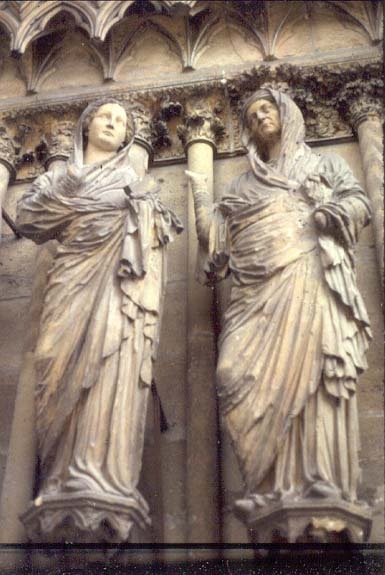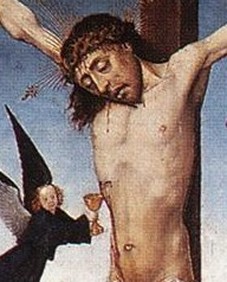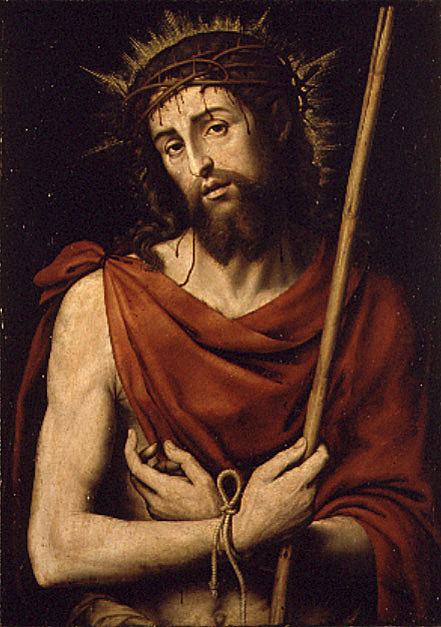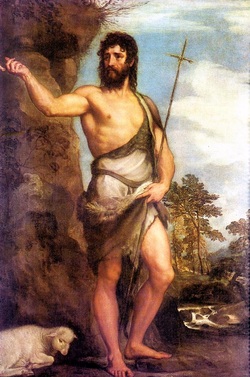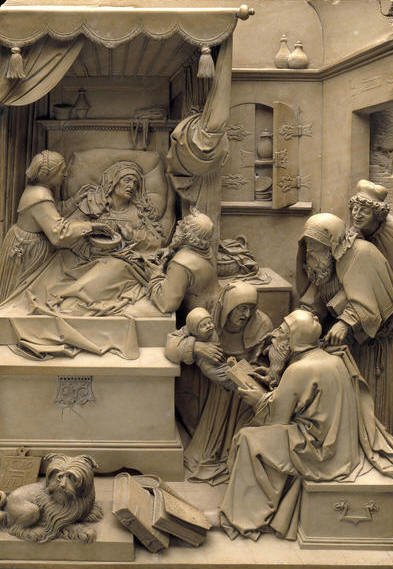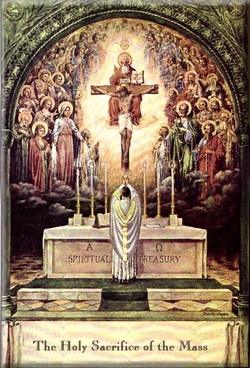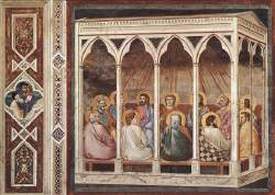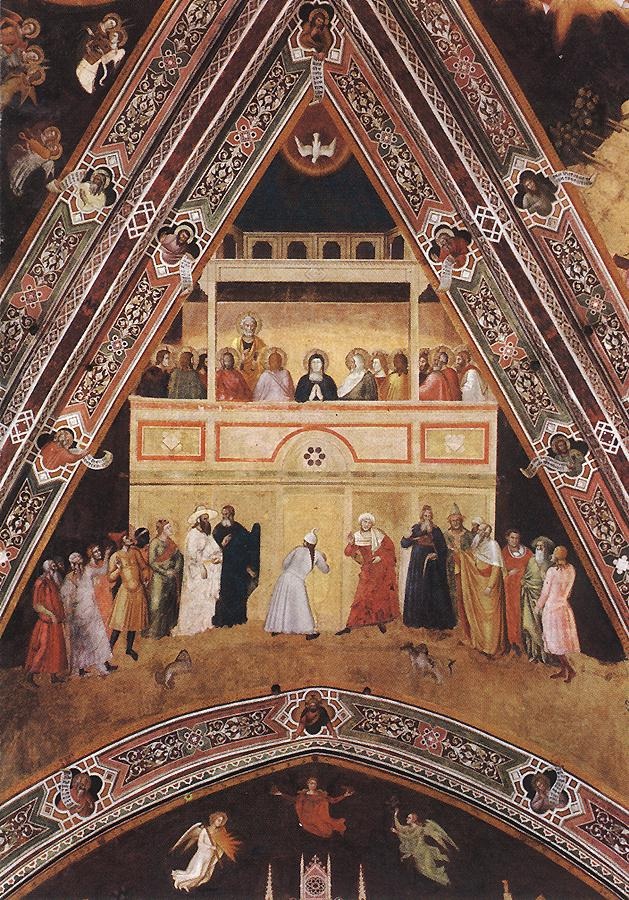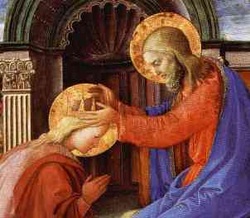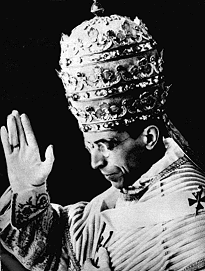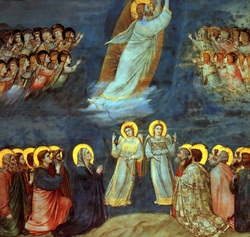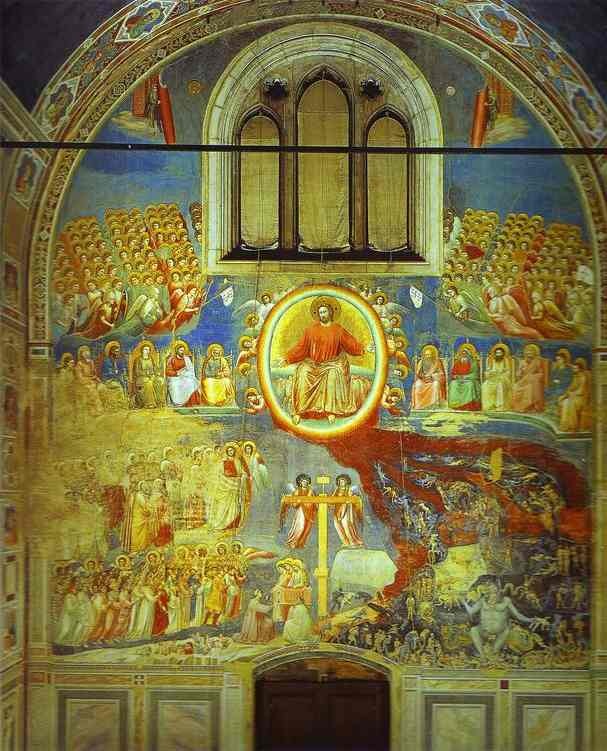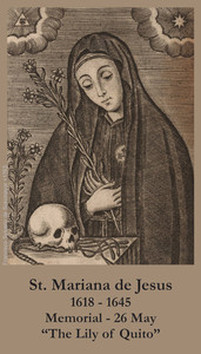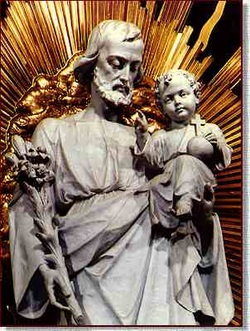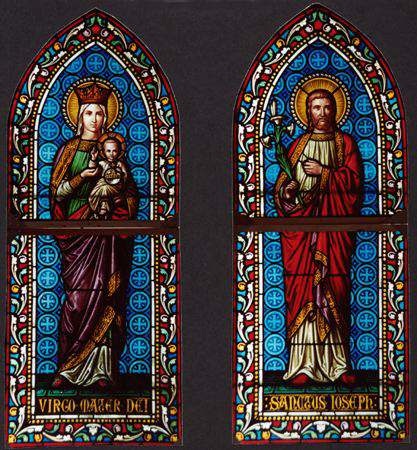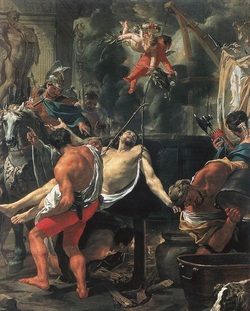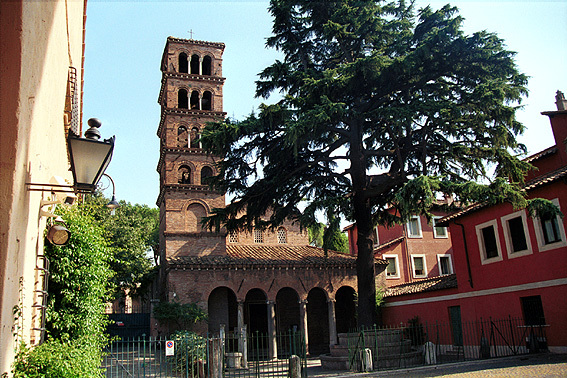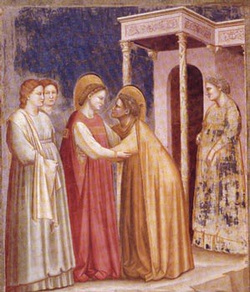
As soon as our Redeemer was come among us, he went with haste, while as yet he was in his mother's womb, to visit his friend John. And John, in the one womb, as if conscious of the presence of Jesus in the other womb, dashed himself impatiently against the narrow walls of his natural prison, as though crying out: I perceive the very Lord that gave nature her bounds! Why therefore should I wait for the due season of my birth? What need is there for me to linger here till nine months are ended, now that the Timeless One is with me! I would break out of my dark cell! I would proclaim my manifold knowledge of marvellous things! I am meant to be a sign, and so even now I would shew that the Christ is here! I am the trumpet-voice, and I desire to peal forth the news that the Son of God is come in the flesh. Let me sound as a trumpet, and bless and loose my father's tongue, and make it speak again! Let me sound as a trumpet and quicken my mother's womb!
Thou seest, O brethren beloved, how new and how strange a mystery is here! John is not yet born, but by leaping he speaketh. He is as yet unseen, but he giveth warning. He is not yet able to cry, but by his acts he beareth witness. He draweth not yet the breath of life, but he preacheth God. He seeth not yet the light, but he maketh known the Sun. He is not yet come out of the womb, but he hasteth to play the Forerunner. In the presence of the Lord he cannot restrain himself, but rebelleth against the bounds set by nature, and struggleth to break out of the prisoning womb, eager to herald the coming Saviour. He saith, as it were: Behold, the Deliverer cometh, and why am I yet in bonds, and made to abide here? The Word cometh, that he may set right all things, and am I still to tarry in prison? I would go forth! I would run before him, and proclaim to all mankind: Behold the Lamb of God that taketh away the sin of the world.
But do thou tell us, O John, how it came to pass that while thou wast still in the darkness of thy mother's womb, thou didst see and hear? How didst thou behold the things of God? How didst thou leap and bound for joy? If we could hear him answer, he would say: Great is the mystery of that which here taketh place. Beyond the understanding of men are these doings! It is meet that I should shew forth a new thing in nature for the sake of him who is making new things which are beyond nature. Even though I be yet in the womb, I perceive, for forth upon me from another womb the Sun of Righteousness shineth. As it were, with mine ears I understand, for I was created to be the Voice of the Great Word. I would cry aloud, for I contemplate the only-begotten Son of the Father clothed in flesh. I tremble for joy, for I perceive that he, by whom all things were made, hath taken upon him the form of a servant. I leap as I think of the Redeemer of the world being made flesh, for I would run before his coming. Nonetheless, I herald his approach unto you as best I can, and make on this wise my confession of him whose Forerunner I am.
